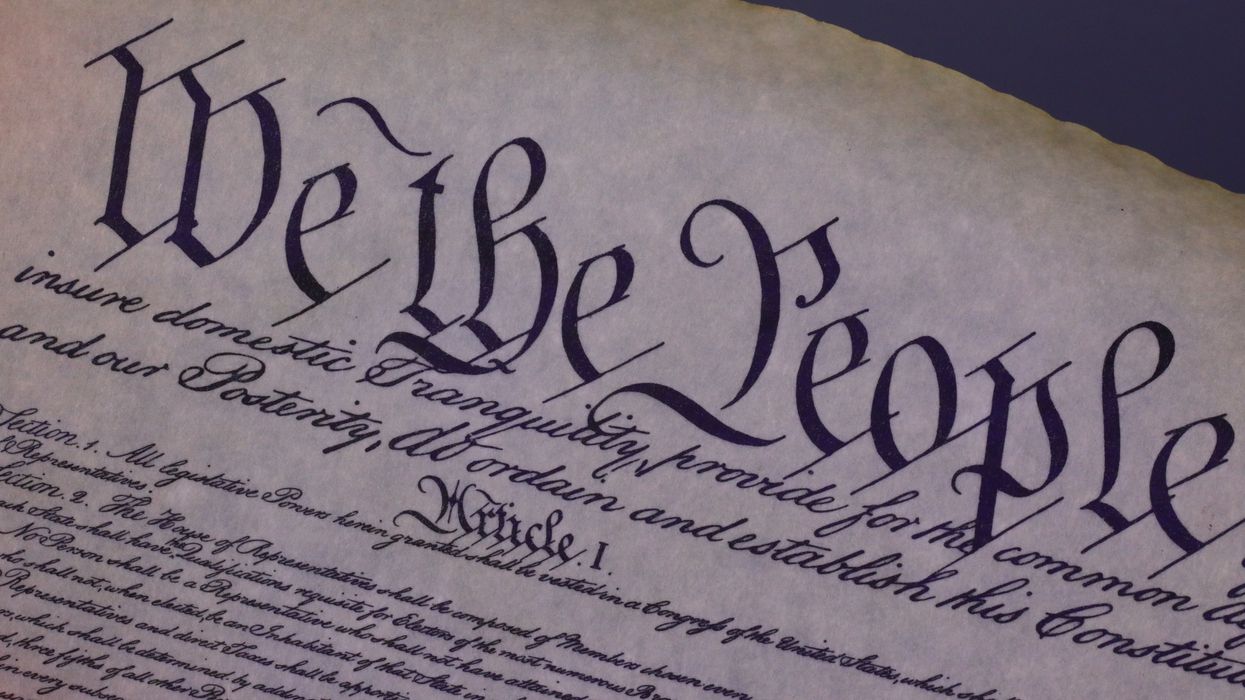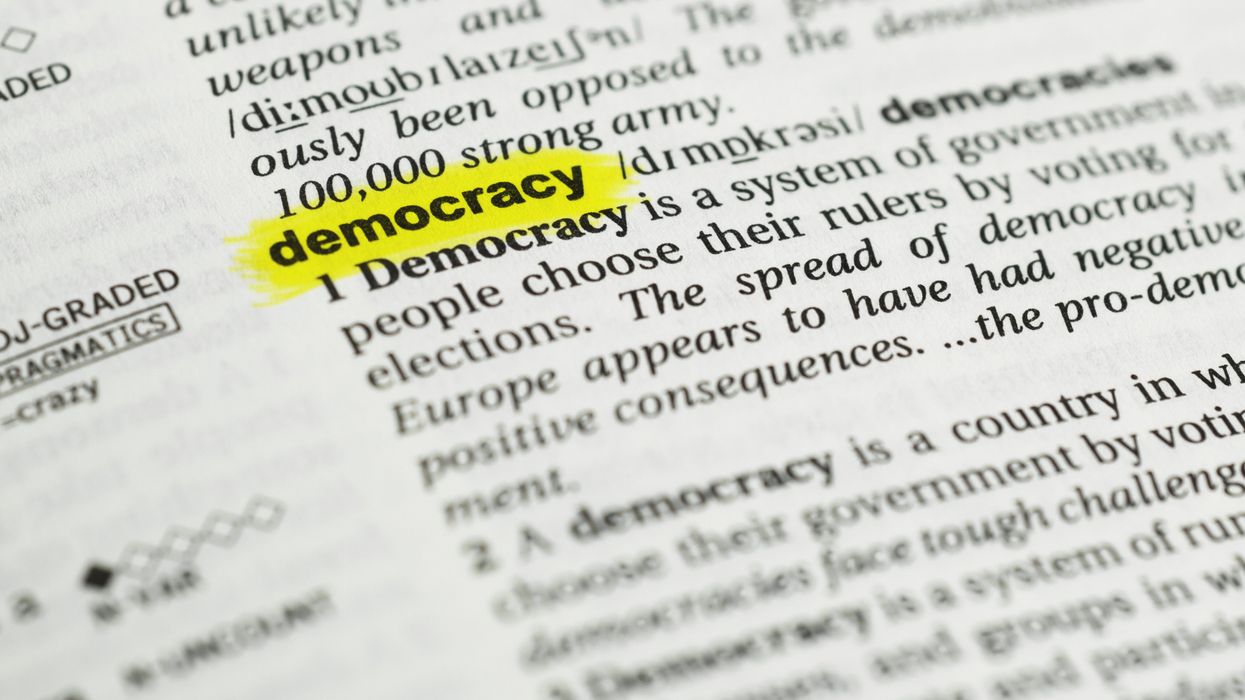The Fulcrum presents The Path Forward: Defining the Democracy Reform Movement. Scott Warren's weekly interviews engage diverse thought leaders to elevate the conversation about building a thriving and healthy democratic republic that fulfills its potential as a national social and political game-changer. This series is the start of focused collaborations and dialogue led by The Bridge Alliance and The Fulcrum teams to help the movement find a path forward.
In the weeks following President Trump’s inauguration, it is challenging to make sense of the state of our democracy. I am in some conversations where colleagues and friends who assert that Elon Musk is leading a coup. For many, “constitutional crisis” has become the term of the day. I’ve met with conservatives buoyed by a new sense of dynamism and opportunity for re-invention of a stagnant and dysfunctional government and are critical of the left for alarmism. I also know many who have already lost their jobs due to federal cuts, having spent their entire careers fighting for democracy.
The path forward is muddled for the nebulously defined but quickly growing pro-democracy community. The movement, loosely defined as individuals and organizations dedicated to improving the country’s civic and political fabric, whether through structural or cultural means, has been admittedly anti-Trump in nature. While not always national in scope, the community has made clear that the election of a man who has frequently challenged democratic norms and helped ferment an insurrection is antithetical to its values.
By that value, the community itself faces an existential moment. Whatever the reason for Trump’s re-election (and the reasons have been and will be debated in earnest, whether it be the price of eggs, sexism, and racism, the ineptitude of the Democratic party, or anti-incumbency bias), it has become evident that existing strategies are not working. Americans are not buying the form of democracy this field has been selling.
(It is important to note that the definition of democracy itself is contested and should be adjudicated. Trump-supporting conservatives will say they are fighting for democracy. Indeed, in his recent speech at Munich, Vice President Vance’s castigation of European countries and support of far-right parties was explicitly couched in democracy language, noting, “But what no democracy, American, German, or European, will survive is telling millions of voters that their thoughts and concerns, their aspirations, their pleas for relief are invalid or unworthy of even being considered. Democracy rests on the sacred principle that the voice of the people matters.”)
Given the challenges of the moment, an urgent conversation within the pro-democracy community is needed to assess the path forward. That dialogue is necessarily difficult. Some argue that given the cost to real people at this moment, a new type of resistance is needed. Others worry that advocates overreact too early to every policy the new Administration pushes out.
Others believe that focusing on the ideal of democracy itself is not helpful, but rather, the best path forward is to articulate and highlight policies that positively affect people. Democracy cannot be abstract; it must be delivered to the people.
Some say that a focus on Trump is distracting, imploring the community to ignore national politics and highlight the local. Democracy, the argument goes, occurs in local community groups, and a national anchor is counter-productive.
Others assert that the structural barriers in place continue to prevent true representation, making the case for reforms like proportional representation, rank-choice voting, or participatory mechanisms like citizen assemblies. This community tends to focus more on future thinking, moving past the challenges of the moment.
Having been active in the pro-democracy sphere for over a decade, I don’t think the answers to this debate are clear or obvious at all. If they were, we wouldn’t be in this predicament. I also do not believe that the solutions are mutually exclusive. However, I do think that sometimes the field, perhaps because of financial interests (it’s hard to raise money!) or perhaps because of organizational ego, ignores the potential reinforcing nature of a functioning ecosystem. In its worst form, this leads to organizations continuing to promote silver-bullet solutions to the crisis in our democracy.
What is clear, however, is that the field cannot rely on old strategies. The sector must debate the path forward.
To that end, I’m excited to be launching a new series with The Fulcrum focused on charting a potential path forward for the pro-democracy community. Over the next few weeks, I’ll interview diverse leaders in the sector and ask them for their candid thoughts on what is working, what is not working, and what needs to change. You’ll hear from pastors, former elected officials, Republicans, Democrats and Independents, national experts, and local leaders. Their proposed solutions are similarly diverse.
This project's purpose is not to develop a playbook for the sector. Instead, it is to elevate the conversations that need to happen. Gal Beckerman’s recent book “The Quiet Before” analyzed how ideas and movements have historically matured. He found the importance of testing ideas out, “imagining and arguing together, moving toward shared objectives.”
Beckerman told the story of 1930 Ghanaians imagining a new path forward from the British colonialists. Needing a place to explore potential strategies for freeing themselves from Britain and imagining a new identity, Ghanaians created “The African Morning Post,” which allowed readers of all kinds to contribute and test out ideas. “The arguing allowed them to peek over the dividers of the tribe and establish new allegiances — they expressed their difference but did so on the same page, creating a new sort of African public sphere and helping lay the groundwork for independence.”
I hope this series can lend itself to these types of public debates. The point is not to use one playbook but to get past an unprecedented moment. To do so effectively, we need to test out new ideas.
Please let me know if you have thoughts, perspectives, or ideas of individuals to interview. I look forward to learning alongside you.
Executive Editor's Notes: Scott's first interview with Julia Roig, Founder & Chief Network Weaver at The Horizons Project, will be published on Thursday, March 6.
Scott Warren is a fellow at the SNF Agora Institute at Johns Hopkins University. He is co-leading a trans-partisan effort to protect the basic parameters, rules, and institutions of the American republic. He is the co-founder of Generation Citizen, a national civics education organization.
SUGGESTION: A Democracy Reform Movement- If we can define it
 Imagining constitutions
Douglas Sacha/Getty Images
Imagining constitutions
Douglas Sacha/Getty Images


















 A woman prepares to cast her vote on May 4, 2025 in Bucharest, Romania. The first round of voting begins in the re-run of Romania's presidential election after six months since the original ballot was cancelled due to evidence of Russian influence on the outcome. Then far-right candidate Calin Georgescu surged from less than 5% days before the vote to finish first on 23% despite declaring zero campaign spending. He was subsequently banned from standing in the re-rerun, replaced this time round by George Simion who claims to be a natural ally of Donald Trump.Getty Images, Andrei Pungovschi
A woman prepares to cast her vote on May 4, 2025 in Bucharest, Romania. The first round of voting begins in the re-run of Romania's presidential election after six months since the original ballot was cancelled due to evidence of Russian influence on the outcome. Then far-right candidate Calin Georgescu surged from less than 5% days before the vote to finish first on 23% despite declaring zero campaign spending. He was subsequently banned from standing in the re-rerun, replaced this time round by George Simion who claims to be a natural ally of Donald Trump.Getty Images, Andrei Pungovschi

Trump & Hegseth gave Mark Kelly a huge 2028 gift